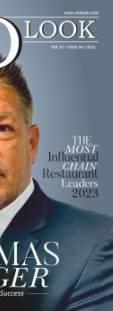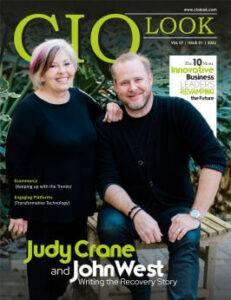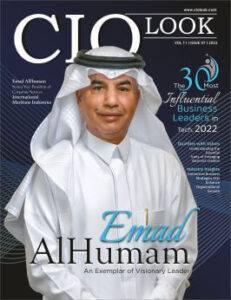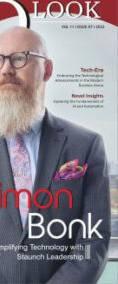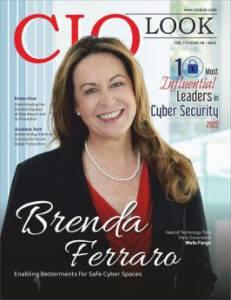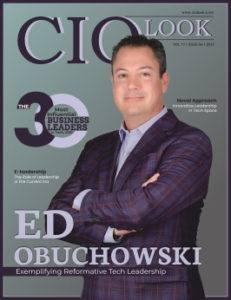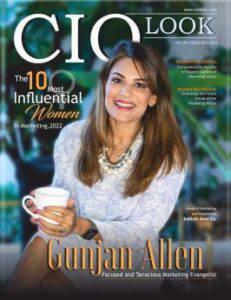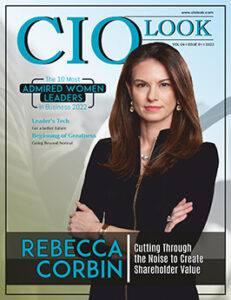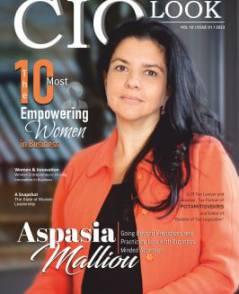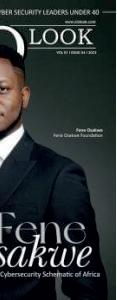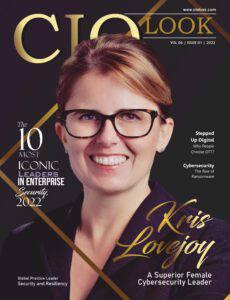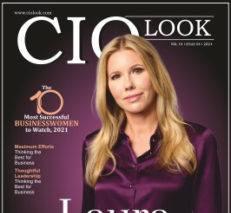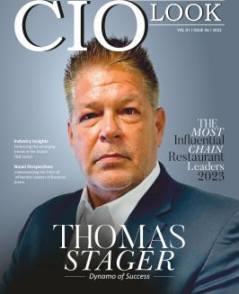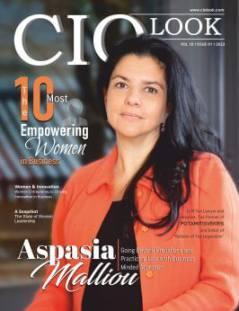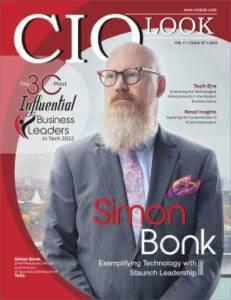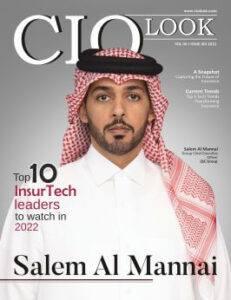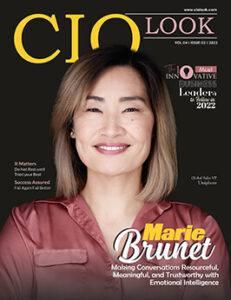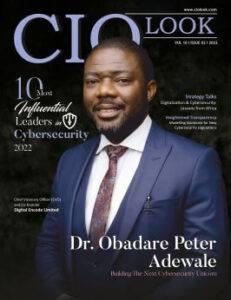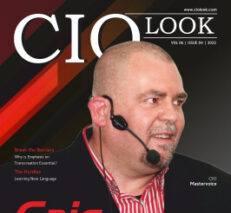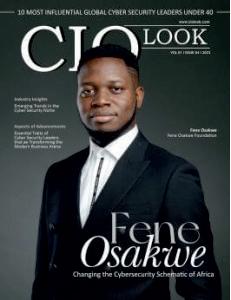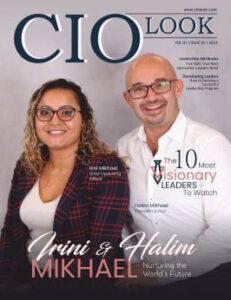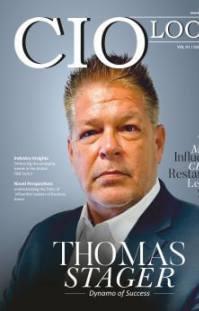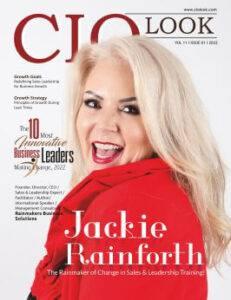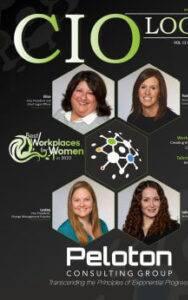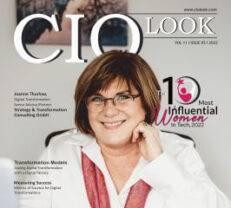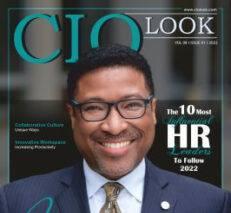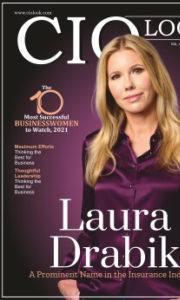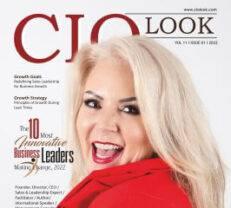





"In risk management, foresight transforms challenges into stepping stones towards success."









"In risk management, foresight transforms challenges into stepping stones towards success."


Inaworlddefinedbyvolatility,uncertainty,
complexity,andambiguity,theroleofrisk managementhasneverbeenmorecritical.From globaleconomicfluctuationstocybersecuritythreatsand regulatoryshifts,organizationstodayarenavigatingan increasinglycomplexrisklandscape.Theseleadersstand outnotonlyfortheirtechnicalexpertise,butalsofortheir strategicvision,agility,andcommitmenttofosteringa cultureofresiliencewithintheirorganizations.Theyareat theforefrontofinnovation,drivinginitiativesthatmitigate threats,ensurecompliance,andultimatelyenable sustainablegrowthinuncertaintimes.
CIOLookinitsrecenteditiontitledThe10Most InfluentialRiskManagementLeaderstoWatchin 2025,spotlightstheachievementsofdistinguished professionalsfromawiderangeofindustriesandregions. Unitedbyasharedcommitmenttointegrityandstrategic foresight,theseleadersexemplifyinnovativeapproaches

toriskmanagementfromleveragingadvancedanalytics andartificialintelligencetoenhanceriskmodels,to redefininggovernancestructuresatanenterpriselevel.
Asweadvanceintoanerawhereriskservesasbotha challengeandadriveroftransformation,theinsightsand leadershipoftheseprofessionalswillplayapivotalrolein shapingthefutureofglobalbusiness.Theirwork exemplifiestheevolvingroleofriskmanagementinnot justsafeguardingorganizations,butindrivingstrategic growth,enhancingcompliance,andpromotinglong-term stability Thesetrailblazersarenotonlynavigatingriskbut transformingitintoopportunitysettingnewbenchmarks forresilience,innovation,andstrategicexcellenceinthe yearsahead.
Haveagreatreadahead!
N
18
Navigating Uncertainty, Cultivating Opportunity at HALA
From Risk Mi�ga�on to Value Crea�on How to Implement Strategic Risk Innova�ons Effec�vely?
22 From Defensive to Dynamic How to Embrace Next-Gen Risk Leadership?
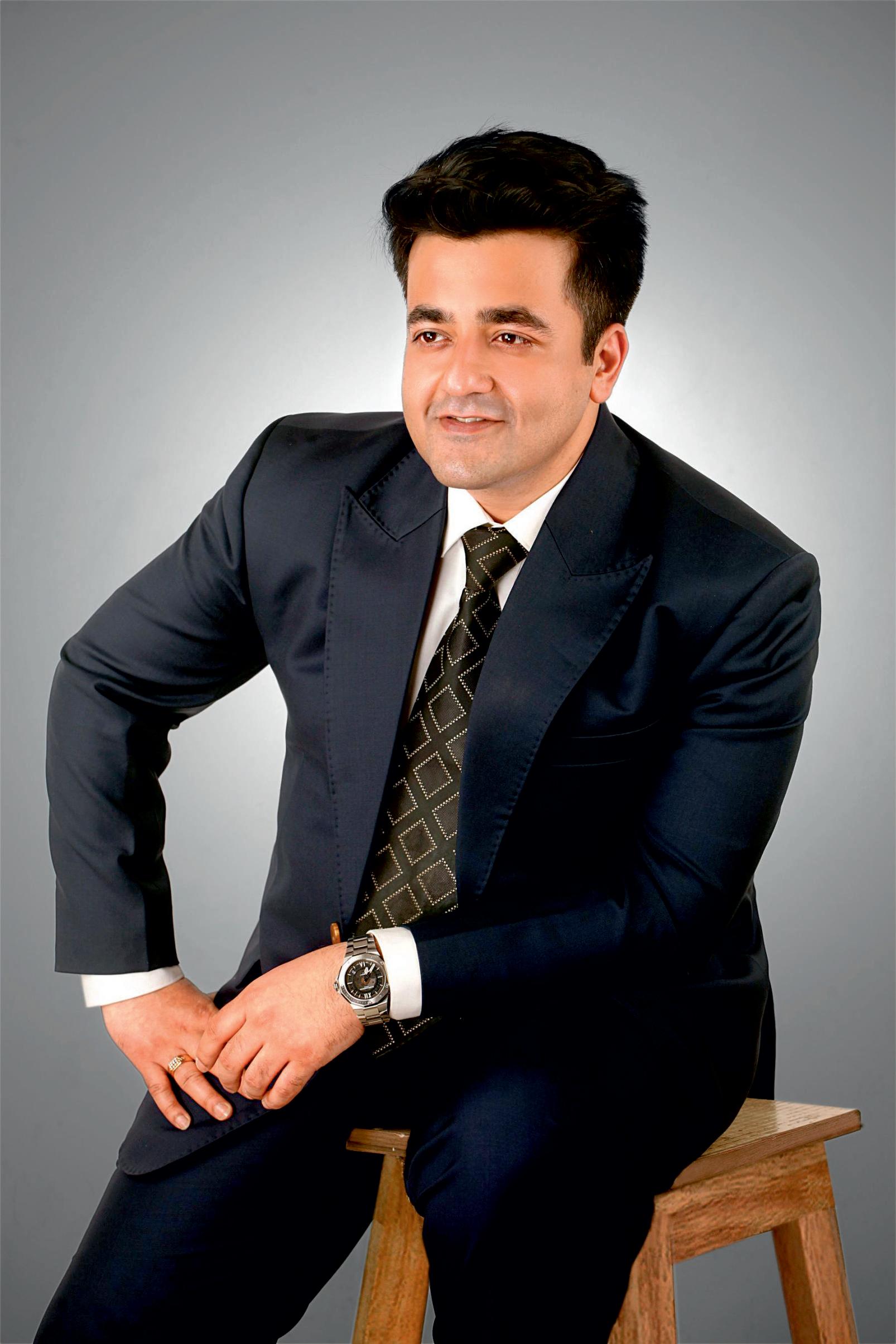
PoojaMBansal Editor-in-Chief
CONTENT
Deputy Editor Anish Miller
Managing Editor Prince Bolton

FOLLOWUSON WE ARE ALSO AVAILABLE ON
www facebook.com/ciolook/ www.x.com/ciolookmagazine
DESIGN
Visualizer Dave Bates
Art & Design Director Davis Mar�n
Associate Designer Jameson Carl
SALES
Senior Sales Manager Wilson T., Hunter D.
Customer Success Manager Nelson M.
Sales Execu�ves Tim, Smith
TECHNICAL
Technical Head Peter Hayden
Technical Consultant Victor Collins
Research Analyst Eric Smith
SEO Execu�ve Alen Spencer
Email info@ciolook com
For Subscrip�on www.ciolook.com CONTACTUSON
Copyright © 2025 CIOLOOK, All rights reserved. The content and images used in this magazine should not be reproduced or transmi�ed in any form or by any means, electronic, mechanical, photocopying, recording or otherwise, without prior permission from CIOLOOK. Reprint rights remain solely with CIOLOOK.
AlaaAl-Shuwaikh ChiefRiskOfficer
AmiraG.AlMutairi DirectorGovernance, RiskMgmt& Compliance
AntonioGámez ChiefRiskOfficer
ChrisJaques GroupChief RiskOfficer
HiteshMasand ChiefRiskOfficer (CRO)
JeremeEvans StrategicRisk Management -AssociateDirector
MohamedEl-Bossaily ChiefRiskOfficer
RayanSherbeny Director-Risk Management
RemiGoron ChiefRiskOfficer
SalwaShahin ChiefRiskOfficer (CRO)
Atme linkedin.com
MinistryofCommunications andInformationTechnology ofSaudiArabia linkedin.com
CommercialBank linkedin.com
FirstAbuDhabiBank(FAB) linkedin.com
HALA linkedin.com
WSPintheMiddleEast linkedin.com
AlaaoverseesriskatAtme,drivingcompliance,fintechrisk governance,andoperationalresiliencetoenablesecure innovationandsupportthecompany’sstrategicvision.
AmiraleadsGRCattheMinistry,drivingdigitaltrust, regulatorycompliance,andcybersecuritytosupportSaudi Arabia’sdigitaltransformationandVision2030.
AntonioleadsriskstrategyatCommercialBank,ensuring regulatorycompliance,creditoversight,andoperational resiliencetosupportthebank’ssustainablegrowth.
Chrisleadsgroup-wideriskstrategyatFAB,ensuring regulatorycompliance,financialresilience,andoperational integrityacrossglobalmarketssupportingsustainablegrowth.
HiteshleadsHALA’sriskstrategy,enablingsecureinnovation throughstrongregulatorycomplianceandeffective managementoffinancialandcybersecuritythreats.
JeremeleadsstrategicriskatWSP,enhancinginfrastructure resilience,ESGintegration,andprojectriskframeworksto supportsustainabledevelopmentacrossMiddleEast.
EnmaaFinanceCompany linkedin.com
BupaArabia linkedin.com
ManaraMinerals linkedin.com
Knet"TheSharedElectronic BankingServicesCo. linkedin.com
MohamedoverseesenterpriseriskatEnmaaFinance,driving regulatoryalignment,creditriskcontrol,andstrategic resiliencetosupportsecureandcompliantgrowth.
MohamedoverseesenterpriseriskatEnmaaFinance,driving regulatoryalignment,creditriskcontrol,andstrategic resiliencetosupportsecureandcompliantgrowth.
RemileadsriskmanagementatManaraMinerals,ensuring strategic,operational,andenvironmentalriskoversightasthe companysupportsSaudiArabia’sresourcesector transformation.
SalwaoverseesriskatKNET,ensuringsecure,compliant digitalpaymentsystemsandprotectingKuwait’selectronic bankinginfrastructure.
A clearly defined and effectively executed risk strategy transforms uncertainty into strategic advantage, enabling organizations to proactively identify opportunities that others overlook.

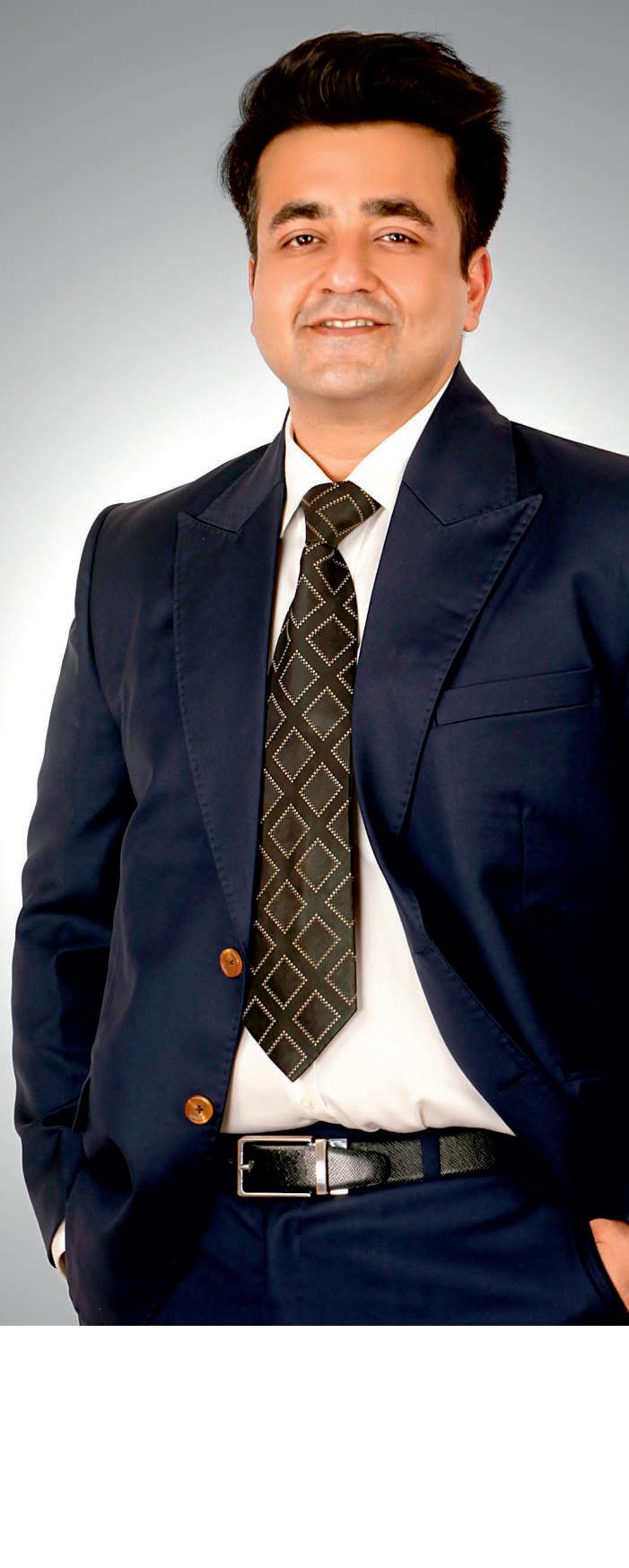



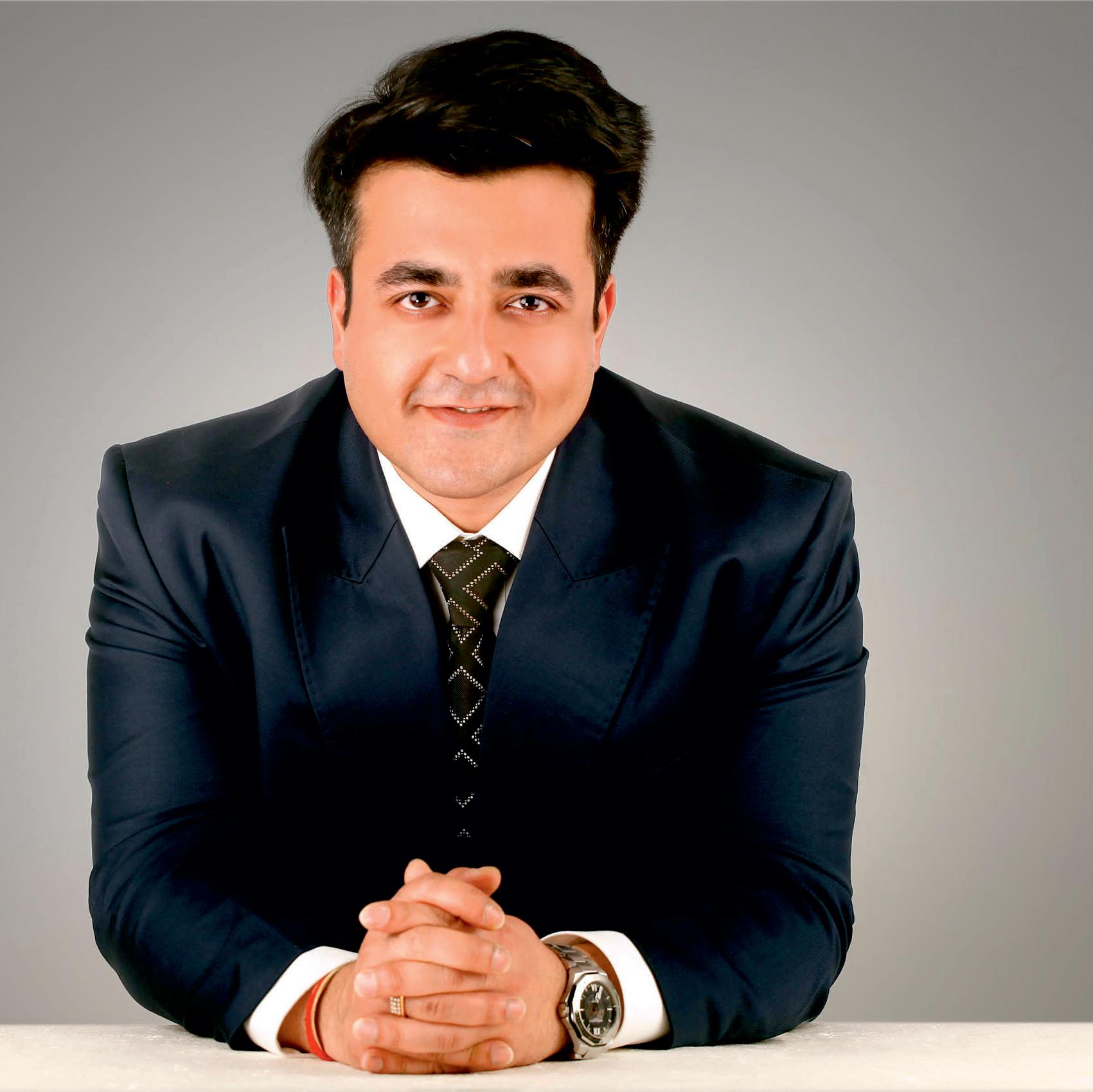


Inthecomplexdichotomybetweenpotentialandrisk
When I talk about “risk,” I’m referring to the combination of uncertainty, exposure, and opportunity. While uncertainty can threaten business continuity, it can also spark breakthroughs that redefine entire sectors. Leaders who grasp this duality find that risk management is essentially about creating room for calculated experimentation. We identify, quantify, and monitor risks not just to avoid them but to harness them.
thatcharacterizesthecontemporarybusiness environment,fewpositionsareascentralasthatofthe ChiefRiskOfficer(CRO).Attheforefrontofthisessential functionforHALA,aforward-lookingandinnovative company,isHiteshMasand.Hispathtothiscrucial positionismorethanarecordofprofessionalrisebuta tributetoanabidinginterestintheartofdelicatebalance betweenriskandopportunity.ForMasand,managingriskis morethantheconventionalideaofprotectionagainst danger;itisastrategicimperative,adrivingforcefor innovation,andindeedtheveryenginethatdriveslongtermgrowthinanever-growing,moreintricateworld.His philosophy,honedthroughyearsofreal-worldexperience andasharpintellectualinterest,makeshimnotonlya custodianofthebottomlinebutalsoavisionaryleader steeringHALAintoafuturecharacterizedbyresilienceand strategicinsight.
TheGenesisofaRiskNavigator:FromAcademic InquirytoReal-WorldChallenges
Masand'sinitialinclinationsprefiguredhiseventual deepeninginthefieldofrisk.Hisacademiclifewas characterizedbyakeeninterestinthefieldsthataimedto comprehendthecomplexitiesofdecision-makingin ambiguoussituations.Statistics,probability,gametheory andbehavioraleconomicsweresomeofthesubjectsthathe creditsforgivinghimatheoreticalunderstandingofthe humanfactorindealingwithambiguity Thisintellectual inquisitivenessfounditsidealvehicleintheareaofrisk management,anarenathatprovidedaconcretemeansof convertingintangibleuncertaintiesintoactionableinsights withthepotentialtodriveorganizationalresults.
Hisfirstdaysintheworldoffinancewereduringthe infamousGlobalRecessionof2008.Thisinitialexperience gaveMasandabird's-eyeviewoftheglobalimplicationsof seeminglyisolatedeventsinacertainregion.Hesawhow decisionsmadewithinacertaingeographyorevenan unrelatedindustrycouldhavemeaningfulimplicationsin far-flungpartsoftheglobe.Theycouldreverberatethrough intricatesupplychains,seeminglyunrelatedindustries, companiesandcountries.Insteadofbeingintimidatedby themagnitudeofthoseuncertainties,Masandbecame fascinatedwiththechallengeofcomprehending,measuring, andeventuallymanagingthem.Thatearlycuriosityevolved intoadeepandabidingpassionforthefieldofRiskand Financeingeneral.
To stay ahead of the curve, I blend both rigorous analytical inquiry and the cultivation of diverse perspectives.
WhenMasanddiscusses"risk,"hisdefinitioninvolvesa synergisticinteractionofuncertainty,exposure,and,most importantly,opportunity Thoughuncertaintyinherentlyhas thepotentialtointerruptbusinessasusual,italsohasthe potentialforrevolutionarybreakthroughsthatcantransform wholeindustries.Thoseleadersthatunderstandthisvery dualityknowthatgoodriskmanagementisallabout establishingasystemthroughwhichit'spossibleto experimentonpurpose.Identifying,quantifying,and carefullytrackingrisksthroughtheirprocessesisnotonly forthepurposeofavoidance.Instead,theyarecreatedto alloworganizationstostrategicallyleveragesuchrisks, turningpotentialthreatsintoopportunitiesforsustainable growthandinnovation.
Ashiscareerunfolded,Masand'sawarenessofrisk managementbecamemorenuancedthanitstraditional understanding.Hehadcometocomprehendthatriskwas morethanjustadefensivefunctionmeanttowardoff impendingcrises.Rather,hecametorealizeitslatent creativequalities.Anarticulateandwell-executedrisk strategy,henoted,couldenableorganizationstospotand leverageopportunitiesthatwouldotherwisebeunavailable. Thistwo-sidednatureofriskmanagement–asadefense shieldagainstadversityandasacompasspointingtheway intounexploredterritory–becamethecorepillarofhis professionalideology,anidealthatguideshispracticeeven tothisdayasChiefRiskOfficeratHALA.ForMasand, headingtheriskfunctionisnotmerelyaboutpreventing losses;itisaboutstrategicallyfacilitatingtheorganization intakingthoughtfulrisksthatopendoorstoinnovationand long-termgrowth.Thiscombinationofstrategicthought andpragmaticproblem-solvingiswhatattractedhimtothe professioninthefirstplaceandnowkeepshispassionand commitmentburningbright.
Masanddoesnotseeriskasafixedthreattobereducedbut ratherasadynamicforceinextricablyboundupwith valuableprogress.Hesuggeststhatrisk,ifwellunderstood andproperlymanaged,istheverycatalystthatdrives innovationandstimulatesorganizationstodrivethelimits ofwhatisthoughtpossible.Intoday'sbusinessworld, definedbytheinstantcreationofnewmarketsandthe disruptiveforceofchangingtechnologies,riskmoves beyonditshistoricalmeaningasahurdle.Rather,Masand contends,itisastrategicleverthatcanbeusedtobecome competitive.
Reflectingontheevolutionofhisprofession,Masandnotes asignificanttransformationintheperceptionand responsibilitiesoftheChiefRiskOfficeroverthepast decade.Historically,theCROrolewasoftenperceivedas primarilythatofagatekeeper–anindividualfocusedon ensuringcompliance,navigatingregulatorylandscapes,and safeguardingthecompany'sfinancialstability.Therisk managementfunctionwasfrequentlysiloedfromcore strategicplanningprocesses,oftenbeingengagedonly whenspecificproblemsorpotentialcrisesarose.However, MasandhighlightstheconsiderableexpansionoftheCRO's purviewinrecentyears,drivenbyagrowingrecognitionof riskmanagementasastrategicfunctionintegraltoinformed corporatedecision-making.Nowadays,CROsarenotjust viewedastheoneswhodefinelimitations;theyarealso beingappreciatedforhavingthecapacitytoposekey "how?"and"whatif?"questionsattheearlystagesofthe strategicplanningprocessandfrequentlyspottingpotential issuesandopportunitiesaheadoftherestofthe organization.
ThisradicalchangeintheroleofaCROreflectsthe growingvolatilityandinterdependenceoftheinternational businessenvironment.Boardroomsandexecutive leadershipteamstodayareawareofthestrategicbenefitof involvingriskofficersinearlyinvolvementinmajor initiatives,likeenteringanewmarket,introducingnew products,oradoptingnew-agetechnologies.Thearrivalof advanceddataanalyticsandreal-timemonitoringsystems hasalsoenabledriskprofessionalstotranscendreactive repairs,providingpredictiveinsightsthatcaninform proactivestrategies.
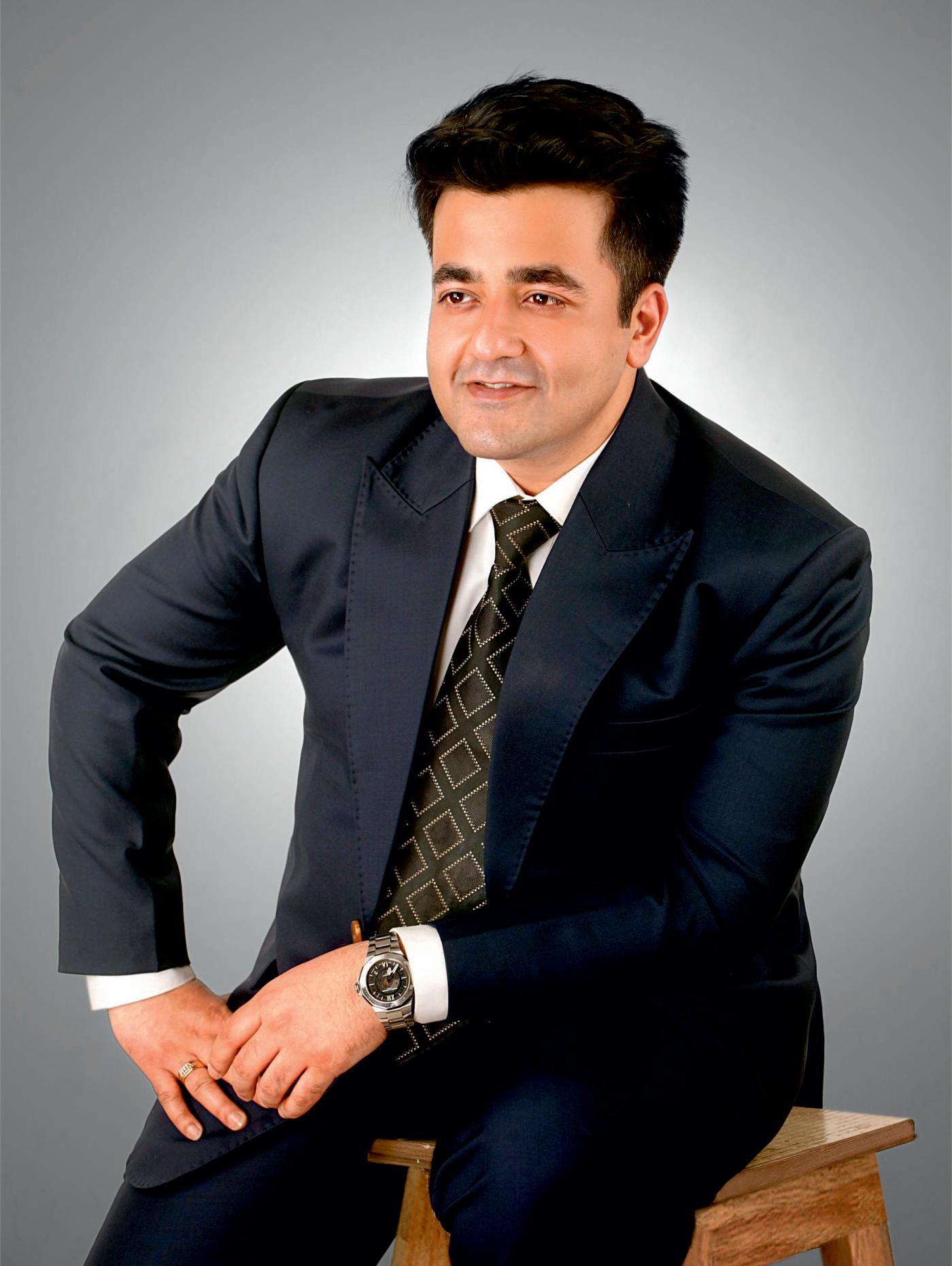
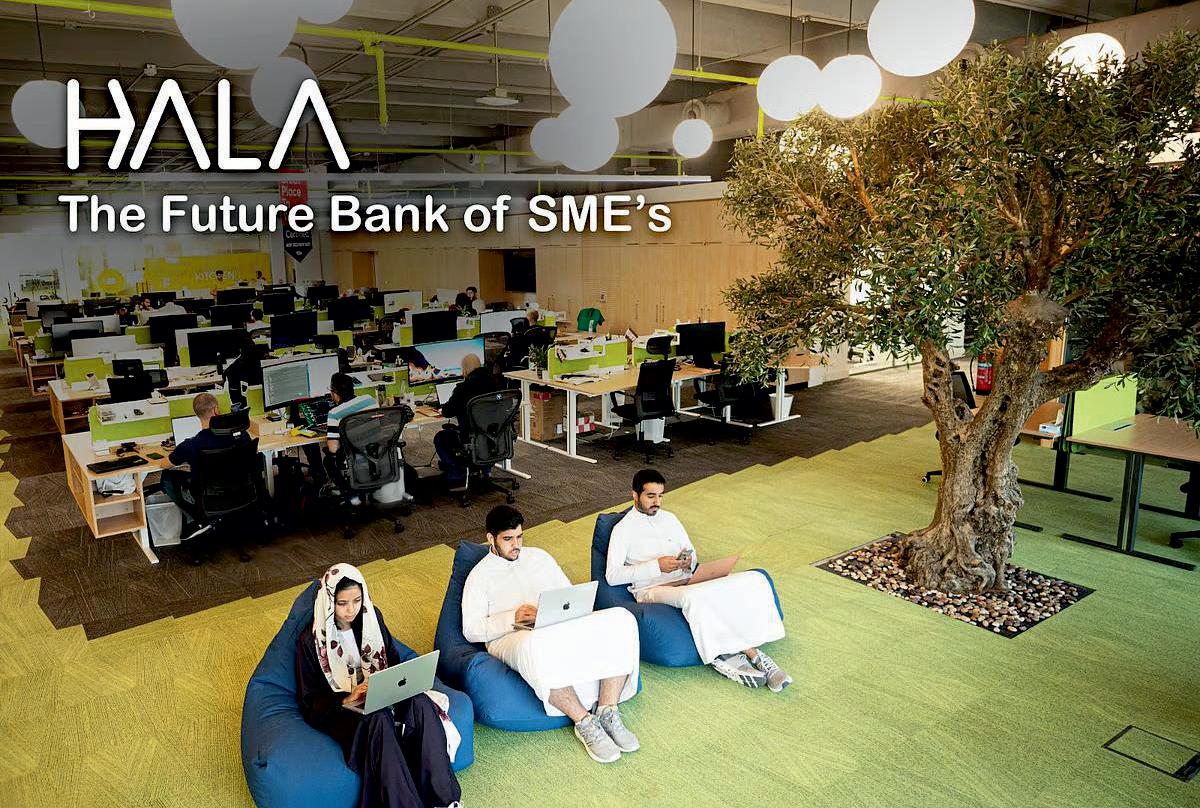
Lookingahead,MasandseestheCROrolecontinuingto evolve,perhapsintosomethingmorelikean"Innovation Catalyst."Asthespeedoftechnologicalprogressandsocial transformationcontinuestoincrease,CROswill increasinglybecalledupontonotonlyspotpotential disruptionbutalsotodecipherthesechangesandtranslate themintodriversofgrowth.Theirroleswillgobeyond conventionalpreventiontacticstoincludedesigningand implementingorganizationalresilience–building frameworksthatwillallowfirmstorespondquicklyand effectivelytotomorrow'sinevitableuncertainties.
ForMasand,creatingatrulyresilientorganizationstarts withdevelopingaculturethatismarkedbytransparency andtrust.Heunderlinestheneedtogenerateaculturein whichpeopledofeelempoweredandabletospeakup aboutpossiblerisks,nearmisses,orunderlying vulnerabilitieswithoutfearofretribution.Thisrequires
activelytearingdownany"blameculture"andinstallingin itsplaceasupportivecultureinwhichraisingconcernsis notonlytobeencouragedbutactivelyvalued.Afterall, Masandobserves,theinitialmajorsteptowards successfullyreducinganyriskistheopenrecognitionofits presence.
Tosuccessfullyinstillriskawarenessamongvariousteams withinHALA,Masandsupportsapolicyaimedatelevating riskmanagementtoacollectiveduty.Thisentailsthe implementationofcollaborativetrainingprograms, interactiveworkshops,andauthenticscenariosimulations thatcatertotheuniquefunctionsofrespectivedepartments fromsalesandmarketingtooperationsandinformation technology.Thekeyaimistoenableeachteamto comprehendtheobviousoverlapbetweenriskmanagement principlesandtheireverydayoperationalfunctions.When staffmembersunderstandhowtheirbehaviors,orinfact, theirlackthereof,cannotonlyamplifyordecreasepossible hazards,butmakethemmorepersonallyengagedand concernedabouttheprocessofoverallriskmanagement.
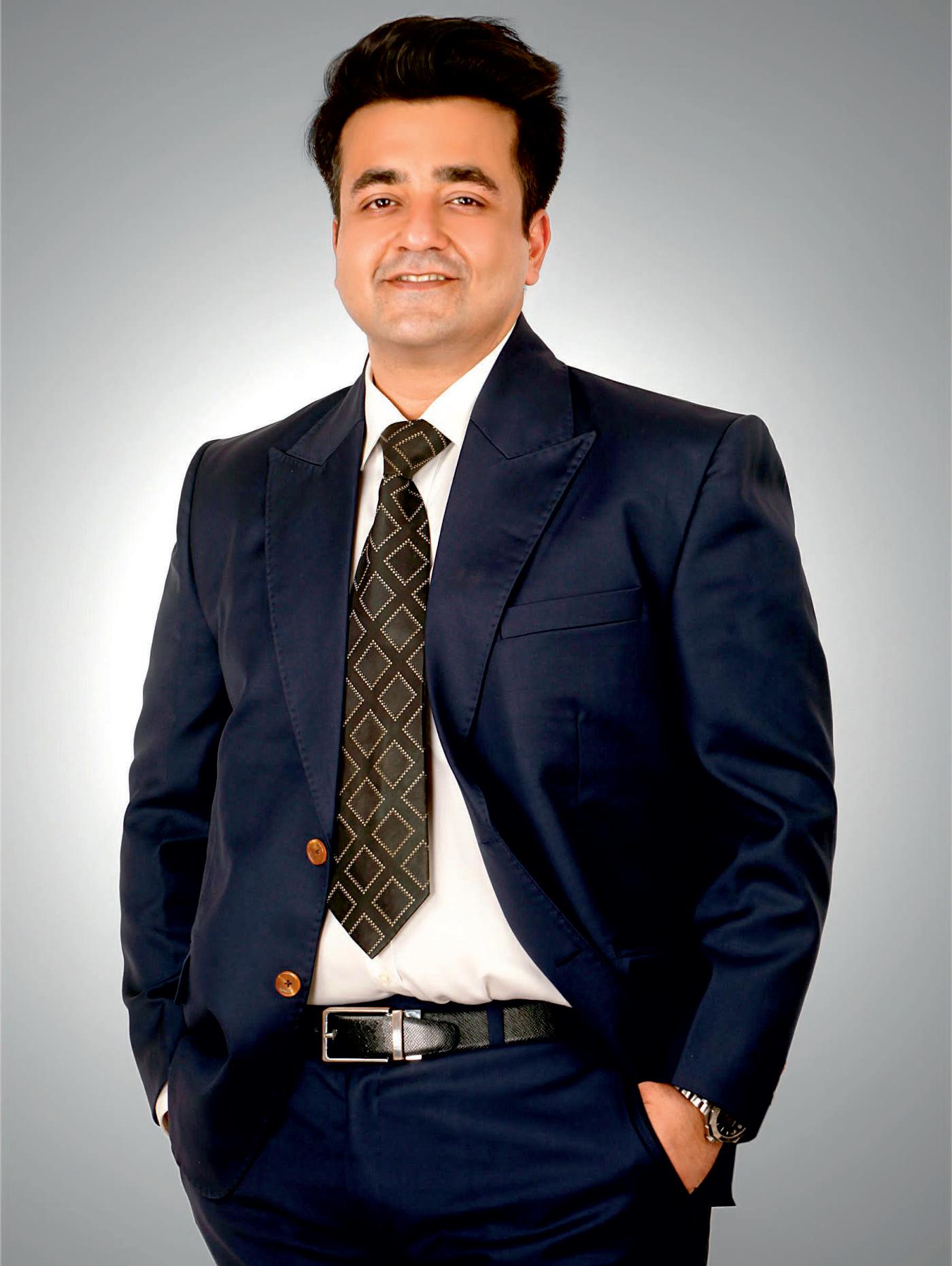
Balancingtheinevitabletensionbetweenthepressureto innovateandthenecessityofmeasuredriskmanagementis anessentialfunctionofMasand'sjobatHALA.Hisopinion isthatproperlymanagingtheseostensiblycompetingforces essentiallycomesdowntoalignment–ensuringthetaking onofnewtechnologicalcapabilityandtheattainmentof ambitiousstrategicgoalsaremeticulouslyalignedwiththe company'swiderrisktoleranceandgeneralstrategicfocus. Masandrecognizesthatafirmwithambitionstobecomea technologicaltrailblazermayinitselfbepredisposedto acceptagreaterlevelofriskinthequestforpotentially game-changingrewards.Butheresolutelymaintainsthat eventheboldestinnovatorsneedasturdystructureofclear guardrailsinplacetosafeguardsustainableandethical expansion.
Inthefast-changingworldofrisk,keepingaheaddemands aforward-thinkingandongoingpassionforlearningand flexibility.Masanddescribeshisapproachtostayingahead ofthecurveasablendofbothrigorousanalyticalinquiry andthecultivationofdiverseperspectives.Heconsciously dedicatestimeeachweektoexplorationandlearning, whetherthroughin-depthreadingsofwhitepapersfrom leadingthinktanks,engagingwithexpertpodcaststhat offernuancedinsights,orparticipatinginwebinarsthat addressemergingindustrychallenges.Additionally,he consciouslyendeavorstoreadbroadsetsofnewsoutlets andresearchjournalsinordertoaccruemultifacetedviews aboutthedriversimpactingtheworldrisklandscape.
Asonereflectsupontheattributesmarkingasuccessful contemporaryriskprofessional,Masandputsgreatstress uponthevalueofabalancedtoolsetincludinganalytical acumencoupledwithcreativeintuition.Hefeelsthat professionalsinthisindustryneedtobeateasewiththe quantitativenatureofriskmanagement–havingtheskillto painstakinglycrunchnumbers,examineintricatedatasets, andbecomeexpertsinadvancedmodelingtools.Buthe alsohighlyappreciatesthelateralthinkingability,the capabilitytorelateapparentlyunrelatedpiecesof information,andthecreativitytocomeupwithinnovative solutionstocomplexproblems.
Inadditiontotechnicalcompetence,Masandemphasizes theimperativeofcollaborationandcommunication capabilities.Riskmanagement,henotes,isnotastandalone activity;itcutsacrossallfunctionaldomainsofan organization–financeandoperationstomarketingand humanresources.Theskilltosimplyandpersuasively articulatesophisticatedriskmetricsandsubtleanalysesin termsofeasilyunderstandableandimplementableinsights toaudienceswithvaryinglevelsoftechnicalsophistication isanessentialabilitythatseparatestrulyeffectiverisk managers.
Borrowingfromhisrichexperienceandprofound knowledgeofthefield,Masandprovidessomeexcellent tipsforthosewhowanttobecomeleadersinrisk management.Hisfirstandmostimportanttipistodevelop anunshakeablespiritofinquiry.Headvisespotentialrisk professionalstoposedifficultquestions,toreview underpinningassumptionscritically,andnevertotreatthe statusquoasinviolate.Theconstantlychangingnatureof risk,hemakesclear,willberepaidbythosewiththe couragetoventureintotheunknown–perhapsthatmeans breakingintoaspecifictechnologyordevelopingan appreciationofthesubtletiesofsomenewmarketoverseas.
Masandemphasizestheabsoluteneedforestablishingsolid andtrust-basedrelationships.Heidentifiesthatriskleaders cannotworkaloneeffectively.Developingmeaningful relationshipswithpeers,internalstakeholderswithin variousdepartments,andevenexternalpartnersis imperativeforsuccess.Whethernavigatinganintricate cyberthreatoraddressingasensitivereputationalcrisis,the capacitytobestmobilizeateamandworkinperfect alignmentwithothersfrequentlydictatestheoutcome.





Inaneradefinedbyrapidchange,global
interconnectivity,andcomplexuncertainties, organizationsmustmovebeyondtraditionalrisk managementpracticesandembracestrategicrisk innovation.Thisshiftrequiresmorethanadoptingnew toolsorframeworks,itcallsforafundamental transformationinhowriskisperceived,governed,and integratedintothestrategicfabricoftheorganization. Thisarticlehighlightsthatbyestablishingclear governanceframeworks,aligningriskappetitewith strategicobjectives,andfosteringacultureof transparencyandaccountability,organizationscan effectivelyanticipate,adaptto,andcapitalizeonriskas adriverofsustainablegrowthandcompetitive advantage.
Effectiveimplementationofstrategicriskinnovation beginswithstrongleadershipcommitmentandthe establishmentofcleargovernanceframeworks.Senior executivesplayapivotalroleindrivingaproactiverisk managementculturebyembeddingriskconsiderations intothestrategicplanningprocess.Thisintegrationis supportedbygovernancestructuressuchascrossfunctionalriskcommitteesorinnovationcouncils, whichfacilitatecollaborationbetweenstrategic,risk, andinnovationfunctionstoensureacohesiveapproach.
Centraltothisfoundationisthealignmentofthe organization’sriskappetitewithitsstrategicobjectives. Clearlyarticulatingthelevelofrisk,theorganizationis preparedtoassumeinpursuitofgrowthenablesmore informedanddeliberatedecision-making.Italsofosters aculturewhereinnovativeriskmanagementpractices

areencouraged,providedtheyremainconsistentwiththe company’soverarchingmissionandvalues.
Toreinforcethisalignment,governancemechanismsmust promotebothaccountabilityandtransparency.Clearly definingtherolesandresponsibilitiesacrosskeyrisk managementfunctions—includingenterpriserisk management(ERM),internalaudit,andcomplianceensures thatstrategicriskinnovationsarenottreatedasisolated efforts.Instead,theybecomeintegralcomponentsofthe organization’sbroaderoperationalandstrategicframework.
Scenarioplanningisacriticalelementofstrategicrisk innovation,enablingorganizationstoanticipateandprepare forarangeofpotentialfuturedevelopments.By constructingplausiblescenariosthatchallengeconventional assumptions,businessescanmovebeyondtraditional,linear forecastingmethodsandadoptamoreexpansive, imaginativeperspectiveonrisk.Thisforward-thinking approachequipsorganizationstobetterunderstandthe uncertaintiesthatcouldinfluencelong-termoutcomes.
Tobeeffective,scenarioplanningmustdrawondiverse insightsfromacrosstheorganizationandbecloselytiedto strategicdecision-making.Itrequiresastructuredprocess thatexamineshowspecificscenarios—suchasgeopolitical instabilityortechnologicaldisruption—mightaffectkey businessinitiatives.Byevaluatingpotentialimpactson areaslikemarketexpansionorregulatorycompliance, organizationscanproactivelydevelopadaptivestrategies ratherthanreactingdefensivelywhenrisksmaterialize.
Complementingscenarioplanningistheconceptof resiliencethinking,whichemphasizestheimportanceof adaptabilityinthefaceofdisruption.Resiliencegoes beyondrecovery;itinvolvescontinuousevolutionandthe abilitytothriveamidchange.Strategicriskinnovations shouldthusprioritizethedevelopmentofflexible operationalframeworks,preserveoptionalityindecisionmaking,andnurtureleadershipcapabilitiesthatenable organizationstorespondeffectivelytouncertaintyand volatility
Evaluatingtheeffectivenessofstrategicriskinnovationsis inherentlycomplexbutremainsavitalcomponentofrisk management.
Traditionalkeyriskindicators(KRIs),whileusefulfor monitoringoperationalrisks,oftenfallshortincapturing thefluidandevolvingnatureofstrategicrisks.Toaddress thisgap,organizationsshouldadoptmoredynamicmetrics thatassessadaptability,responsiveness,andthedegreeto whichtheorganization’sriskposturealignswithits overarchingstrategicobjectives.
Suchmetricsmayincludethetimerequiredtoidentifyand escalateemergingrisks,theregularityofscenarioplanning exercises,ortheproportionofstrategicinitiativesthat undergoformalriskevaluation.Thesemeasuresprovide meaningfulinsightsintowhetherstrategicriskinnovations aretranslatingintomoreresilientandstrategicallyaligned decision-makingprocesses.Byfocusingonthese dimensions,organizationscanbetterdeterminetheimpact oftheirriskinnovationeffortsonlong-termperformance andagility.
Equallycriticaltomeasurementistheeffective communicationofriskinsights.Tosupportinformed decision-makingattheexecutivelevel,riskinformation mustbepresentedinaclear,concise,andimpactfulmanner Toolssuchasvisualstorytelling,executivedashboards,and risk-adjustedperformanceindicatorsplayakeyrolein engagingseniorleadershipandboardmembers,ensuring thatriskconsiderationsarefullyintegratedintostrategic discussionsandorganizationalpriorities.
Successfullyimplementingstrategicriskinnovationisnota one-timeinitiativebutanongoingorganizational commitment.Itdemandsvisionaryleadership,integrated governance,andadynamicapproachtoplanningand resilience.Byfosteringanenvironmentwherescenario planninginformsstrategy,whereresilienceiscultivatedat everylevel,andwhereperformanceiscontinuously measuredandclearlycommunicated,organizationscan navigateuncertaintywithgreaterconfidence.Ultimately, thosethatembedstrategicriskinnovationintotheircore operationswillbebetterequippednotonlytowithstand disruptionbuttotransformitintoopportunity,securing long-termvalueinanincreasinglyunpredictableworld.




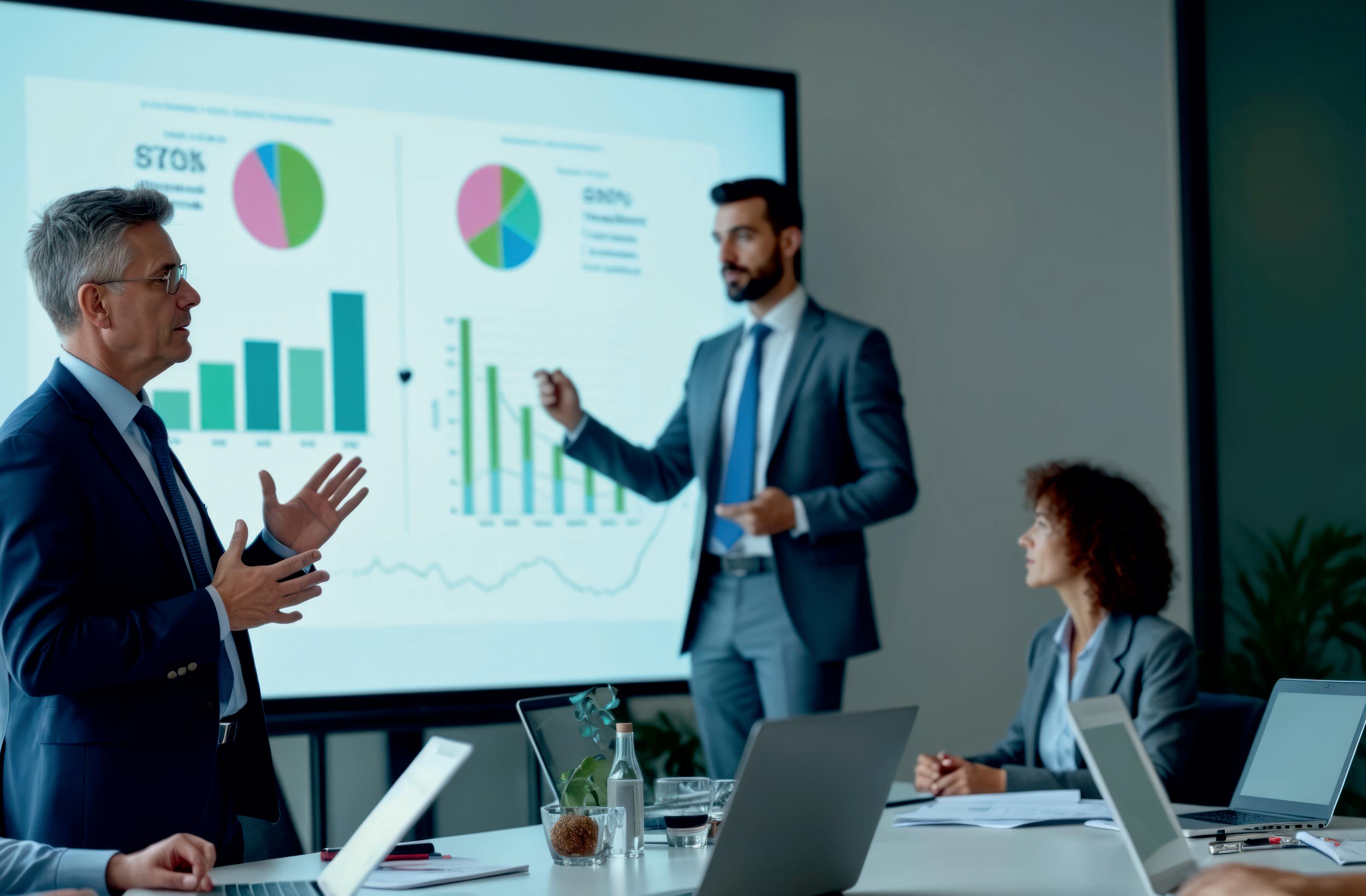

Inaworldmarkedbyconstantdisruptionwhetherfrom
technologicalinnovation,globalcrises,regulatory shifts,orevolvingstakeholderexpectations,the traditionalapproachtoriskmanagementisnolonger sufficient.Riskcannolongerbeseenmerelyasa complianceexerciseoradefensivemechanism.Instead,it mustberecognizedasastrategiccapabilitythatempowers organizationstomakeinformeddecisions,respondswiftly tochange,andseizeemergingopportunities.Nextgenerationriskleadershipisaboutmovingfromareactive mindsettoaproactive,integrated,andforward-thinking approach.Itdemandsthatleadersnotonlyunderstandthe complexitiesoftoday’srisklandscapebutalsoembedrisk considerationsintotheveryfabricofbusinessstrategyand culture
Afundamentaltransformationinnext-generationrisk leadershipliesinembeddingriskmanagementintotheheart ofbusinessstrategy Thisshiftcompelsexecutivesand boardmemberstomovebeyondviewingriskasmerelya limitation,insteadrecognizingitasacriticalfactorthat informsandenhancesdecision-making.Bygivingequal weighttopotentialthreatsandemergingopportunities, organizationscancraftstrategicplansthatarenotonlybold butalsoresilientinthefaceofuncertainty
Tosupportthisintegration,theremustbearethinkingof howperformanceismeasured.TraditionalKPIsneedto evolveintorisk-adjustedmetricsthatreflectbothreturns andtheassociatedvulnerabilities.Leadersaretaskedwith evaluatingthelong-termimpactoftheirstrategicchoices, balancingpotentialgainsagainsttheorganization'sability toabsorboradapttorisk.Thisforward-lookingapproach reliesheavilyontoolssuchaspredictiveanalyticsand scenarioplanning,whichenableleaderstoanticipate variousoutcomesandpivoteffectivelyindynamic environments.


Organizationalcultureisacornerstoneofeffectiverisk management.Embracingnext-generationriskleadership involvesnurturinganenvironmentthatprioritizesopenness, criticalthinking,andcollaborationacrossalldepartments. Employeesshouldfeelconfidentinraisingconcernsand activelycontributingtoidentifyingandaddressingrisks, regardlessoftheirpositionwithintheorganization.Sucha culturenotonlysupportsstrongerriskawarenessbutalso ensuresthatinsightsfromacrossthebusinessareharnessed inacohesiveandconstructivemanner
Tobuildthistypeofculture,leadershipmustconsistently communicatetheimportanceofriskawareness,support ongoinglearning,andacknowledgeproactivebehavior. Comprehensivetraininginitiativesshouldbeimplemented tohelpemployeesrecognizeearlyindicatorsofriskand respondappropriately.Equallyimportantistheshifttoward viewingfailuresaslearningopportunitiesratherthan groundsforblame.Bypromotingthismindset, organizationscreateasafespaceforhonestdialogueand continuousimprovement,allowingpotentialissuestobe addressedbeforetheyescalate.
Regulatorydemandsrelatedtoriskmanagementare becomingincreasinglyrigorous,especiallyinkeyareas suchassustainability,dataprotection,andfinancial resilience.Tonavigatethisevolvinglandscape,nextgenerationriskleadersmustproactivelymonitorregulatory developmentsandcollaboratecloselywithcompliance teamstoensuretheirorganizationsremainalignedwith internationalstandards.Partofthiseffortinvolvesbuilding comprehensiveenvironmental,social,andgovernance (ESG)riskframeworksthatareresponsivetotheshifting expectationsofregulatorsandstakeholdersalike.
Inadditiontomeetingcompliancerequirements, organizationsareundermountingpressurefrominvestors, customers,andthebroaderpublictoadopttransparent, ethical,andforward-thinkingriskpractices.Thereis heightenedscrutinyaroundhowbusinessesaddresslargescalechallengessuchasclimatechange,humanrights,and thestabilityofglobalsupplychains.Modernriskleadership mustthereforegobeyondsafeguardingtheenterprise—it shouldalsodemonstrateacommitmenttosocietal
responsibility,positioningriskmanagementasadriverof sustainableandethicalprogress.
Oneofthemostessentialtraitsofnext-generationrisk leadershipisthecapacitytonavigateuncertaintywith confidenceandclarity.Inmomentsofcrisisorambiguity, effectiveleadersmustremaincomposed,communicate clearly,andmaketimelydecisions,evenintheabsenceof completeinformation.Thiscallsforahighdegreeof emotionalintelligenceandtheabilitytoinstilltrustand assuranceacrosstheorganization,guidingteamsthrough complexandrapidlyevolvingsituations.
Equallyimportantistheabilitytofosteradaptabilityand resiliencethroughouttheorganization.Thisinvolves creatingagileteams,embracingflexibleprocesses,and encouragingaculturethatviewschangeasacatalystfor growthratherthanadisruption.Leadersshouldchampion continuousimprovementandexperimentation,enablingthe organizationtoadjustcourseswiftlywhenneeded.Tools suchasscenarioplanningandstresstestingarecrucialin thisenvironment,helpingleadersanticipatearangeof possibleoutcomesandpreparestrategically.Throughthese practices,organizationsnotonlybecomemorerisk-aware butalsomorecapableofseizingemergingopportunities.
Thetransitionfromtraditional,defensiveriskmanagement todynamic,next-generationriskleadershipmarksa profoundshiftinhoworganizationsprepareforthefuture. Intoday’svolatileandinterconnectedworld,riskisno longeraperipheralconcern—itisacentralcomponentof strategicsuccess.Leadingorganizationsareembeddingrisk awarenessintotheircultures,integratingitintodecisionmaking,andaligningitwithbothregulatorystandardsand societalvalues.Bycultivatingadaptableteams,leveraging dataandtechnology,andfosteringacultureoftransparency andlearning,leaderscantransformriskfromathreatintoa sourceofinsightandopportunity.





